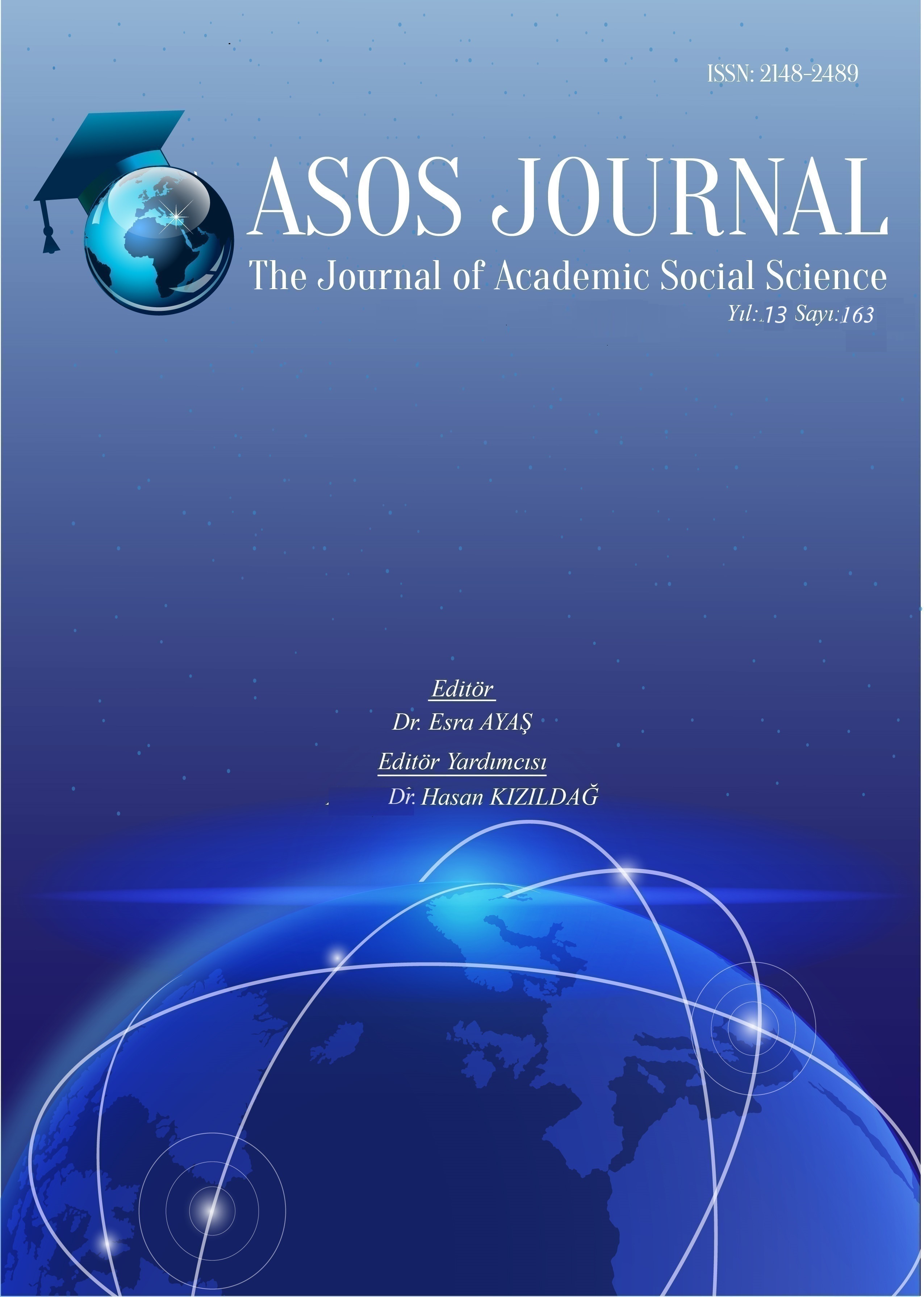THE EFFECT OF WARS ON WILLINGNESS TO WORK IN THE AVIATION SECTOR: THE CASE OF THE ISRAEL-PALESTINIAN WAR
Author :
Abstract
Öz
Bu çalışmada, öğrencilerin savaşa yönelik tutumunun onların sektörde çalışma isteklilikleri üzerindeki etkisini belirlemek amaçlanmaktadır. Bu kapsamda, İsrail-Filistin savaşı örneği üzerinden yönelik havacılık yönetimi bölümü öğrencilerinin tutumu sektör açısından incelenmiştir. Havacılık sektörü, dinamiği ve işleyişi gereği savaşlardan etkilenen başlıca sektörlerden biridir. Buna bağlı olarak sektörün en önemli unsurlarından biri çalışanları olduğundan savaşların onlar üzerinde yarattığı etkiyi ortaya koymak önem taşımaktadır. Bu bağlamda, mevcut araştırma sektörün önemli aktörlerinden olan çalışmaya aday havacılık yönetimi bölümü öğrencilerinin katılımıyla gerçekleştirilmiştir. Araştırmada nicel yöntem kullanılmış ve ölçek formları aracılığıyla veriler elde edilmiştir. Öğrencilerin savaşa yönelik tutumlarını ölçmek üzere "Savaşa Yönelik Tutum Ölçeği (SYT-24)" ve sektördeki çalışma istekliliklerini ölçmek için "Çalışma İstekliliği Ölçeği (ÇİÖ-12)” kullanılmıştır. Elde edilen bulgular, savaşların öğrencilerin çalışma isteklilikleri üzerinde belirleyici olduğunu göstermektedir. Nihayetinde, öğrencilerin savaşa yönelik olumsuz tutumu onların sektördeki çalışma isteklilikleri (işin doğası, fiziksel çevre koşulları, ücret) üzerinde anlamlı ve negatif bir etkiye sahiptir. Mevcut araştırma ile savaşların havacılık yönetimi bölümü öğrencilerinin sektördeki çalışma isteklilikleri üzerinde yarattığı negatif etkiye dikkat çekilmektedir. Öğrencilerin havacılık sektöründeki çalışma isteklilikleri yaşanan savaşlardan önemli ölçüde olumsuz düzeyde etkilenmektedir.
Keywords
Abstract
This study aims to determine the effect of students' attitudes towards war on their willingness to work in the sector. In this context, the attitudes of aviation management students were examined in terms of the sector through the example of the Israeli-Palestinian war. The aviation sector is one of the main sectors affected by wars due to its dynamics and functioning. Accordingly, since one of the most important elements of the sector is its employees, it is important to reveal the effect of wars on them. In this context, the current research was carried out with the participation of candidate aviation management students who are important actors of the sector. Quantitative method was used in the research and data was obtained through scale forms. The "Attitude Scale Towards War (SYT-24)" was used to measure students' attitudes towards war and the "Willingness to Work Scale (WWW-12)" was used to measure their willingness to work in the sector. The findings show that wars are decisive on students' willingness to work. Ultimately, students' negative attitudes towards war have a significant and negative effect on their willingness to work in the sector (nature of work, physical environmental conditions, wages). The current study draws attention to the negative effect of wars on the willingness of aviation management students to work in the sector. Students' willingness to work in the aviation sector is significantly negatively affected by the wars.





